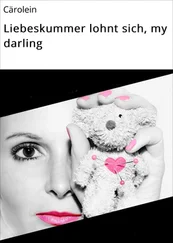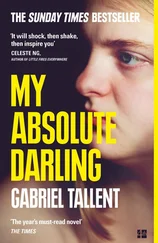There is a hush. The receptionist walks back to her desk. Martin pushes the door open, looks once at Turtle, and walks to the counter. The receptionist gives him a hard look. “You can just . . .” she says, motioning with the papers that he can go right in. Turtle rises and goes after him, past the desk and down the hall, and he knocks once and pushes the door open.
“Come in, come in,” Principal Green says. He is an enormous man, pink-faced, with large, soft pink hands. His fat hangs down and fills up his pleated khaki trousers. Martin closes the door and stands in front of it, as tall as the door itself, almost as broad. His loose flannel shirt is partly unbuttoned and shows his clavicles. His thick, long brown hair is in a ponytail. His keys have begun to cut their way out of his pocket, leaving patches of white threads. If Turtle hadn’t known, she could have told that Martin had the gun just from the way he wore his flannel, just from the way he took his seat, but neither Principal Green nor Anna thinks of it; they do not even know such things are possible, and Turtle wonders if there are things that she is blind to that other people can see, and what those things might be.
Principal Green picks up a bowl of Hershey’s Kisses and holds it first to Martin, who shows his palm to decline, and then to Turtle, who doesn’t move. “So, how has your day been so far?” he asks, setting the bowl back on his desk.
“Oh,” Martin says, “I’ve been better.” Turtle thinks, that is wrong, that is the wrong way, but how could you know better, you’re just a bitch.
“And, Julia, how have you been?”
“I’m good,” Turtle says.
“Ah yes, well, I bet this is a little stressful,” Principal Green says.
“So?” Martin says, gesturing him on.
“Let’s talk about it, shall we?” Principal Green says. The new teachers go by their first names, but Principal Green is a generation older, maybe two. “Since we last spoke, Julia has continued to struggle in her classes and we’re concerned about her. Part of the problem is her grades. Her reading comprehension is not where it could be. She struggles on tests. But for us, the problem—more than any question of her aptitude—is her sense of, well, perhaps her sense that the school may not be welcoming, and we do believe that she needs a certain level of comfort, a certain level of belonging before she can begin to thrive in school. This is the problem as we see it.”
Anna says, “I have been working with Julia quite a bit, and I think that—”
Martin interrupts her, leans forward in his seat, clasps his hands. He says, “She will make the work up.”
Turtle stifles her surprise, looking over at Martin, thinking, what are you doing? What she wants is for Martin to look right at Anna, and she knows he can do it—look right at her, and make her feel good about this whole thing.
Anna says, “Julia seems to have particular trouble with girls. We were thinking—perhaps she might be willing to see Maya, our counselor. A lot of our students find talking to someone very grounding. We believe Julia might gain from having a friendly face here at the school, somebody she can confide in—”
Martin says, “You can’t make Julia’s graduation contingent on her seeing a counselor. So what can we do to make sure she graduates?” He looks at Principal Green. A kind of rising horror is on Turtle, and she quells it, because perhaps she doesn’t understand, and perhaps Martin does. She thinks, what are you doing, Daddy?
Anna says, “Martin, I think there’s been a misunderstanding. Julia will not be held back. Since we no longer have the budget for summer school, and since any continuation school is very limited, all students are promoted into high school. But if she leaves middle school without robust friendships and with her current study skills and level of reading, poor grades will affect her high school curriculum and subsequently her college opportunities. Which is why it is important to continue addressing these questions now , in April, while there is still time left in the school year. It is strictly an issue of Julia’s welfare, and we think that a weekly meeting with somebody she can talk to should be a part of any solution.”
Martin leans forward and his chair creaks. He makes eye contact with Principal Green, presents his hands as if asking, if there are no consequences, what the hell are we doing here?
Principal Green looks at Anna. Martin looks at her as if wondering why she is being looked at. Then he looks quickly away, engaging Principal Green’s attention. Martin thinks Principal Green is in charge and that Principal Green is the nut he can crack. To Martin, Anna seems both too bothersome and too powerless. Turtle doesn’t know why he thinks this. In all of these conversations, she’s never known Principal Green to be anything but unimpressed with Martin. She can see it, how solid he is. He has, Turtle knows, a squinty-eyed son with Down syndrome and he has been principal here for well over twenty years, and Martin is not talking his language. Nothing Martin can say will convince Principal Green of anything. This meeting is all about being polite and showing that Turtle is engaged, showing that Martin is also engaged with Turtle’s teachers, and Martin isn’t doing it right, isn’t saying the right things, is trying to bully Principal Green like he’s tried to bully Principal Green before.
“Martin,” Anna says, “I am very committed to working with Julia and doing whatever is necessary to prepare her for high school, but there are limits to what I can do when Julia is disengaged here at school, unfocused.”
“Mr. Green,” Martin says, as if going argument and counterargument with Anna. Principal Green frowns deeply, swinging a little side to side in his chair, hands clasped over his enormous belly. “Julia’s success is not contingent upon special attention or upon therapeutic intervention. It’s not so complicated. Her schoolwork is boring . We live in exciting and terrible times. The world is at war in the Middle East. Atmospheric carbon approaches four hundred ppm. We are in the middle of the sixth great extinction. In the next decade, we will be over Hubbert’s Peak. We may be over it even now, or we may continue with the present course of fracking, which represents a different but no less serious risk to the water table. And for all your efforts, our children might as well believe their tap water arrives by magic . They do not know that there is an aquifer beneath their town, or that it is dangerously depleted, or that we have no plan for how to supply the town with water after its depletion. Most of them do not know that five of the last six years have been the hottest on record. I imagine that your students might be interested in that. I imagine they might be interested in their future. Instead, my child is taking spelling tests. In eighth grade. Are you puzzled that her mind is elsewhere?”
Turtle is looking at him and trying to see him as Principal Green and Anna see him, and she hates what she sees.
Principal Green looks as if he has heard this objection before, put more forcefully, from others. He says, “Well, Marty. That’s not quite true. Our students have their last spelling test in fifth grade. Eighth graders learn vocabulary words with Greek and Latin etymology, all of which are useful in preparing students to understand and articulate the phenomena you describe.”
Martin stares at Principal Green.
Principal Green says, “Though, it is true that they are required to spell the words correctly.”
Martin leans forward and the Colt 1911 prints against his flannel at the small of his back, and despite how cool his face is, the movement expresses his physical power and menace. It is clear, watching Principal Green and Martin across from each other, that they may even be of a weight, but where Principal Green is spilling hugely off his chair, Martin is solid as a wall. Turtle knows that this meeting is about showing a willingness to address their concerns. Martin doesn’t seem to know it. “I think,” Martin says, “that we should allow Julia to navigate her own relationships with her peers, and her own relationship to her schoolwork, in whatever way is best for her. You cannot dictate that a girl be an extrovert. You cannot dictate that she see a therapist, and you cannot pathologize her boredom and disenfranchisement with a tedious curriculum. In her place, you or I would be bored and disenfranchised. So I will not tell her—nor will I permit anyone to tell her—that she needs special attention. I hear your concerns about the rigors of high school, but I cannot help but think that such rigors can only be a profitable contrast from this mind-numbing gauntlet of spelling tests and plotless children’s books. She will rise to whatever challenges the coming year brings. However, I am cognizant of your concerns and I can commit right now to finding more time to help Julia study and to teaching her the study skills you believe she may lack. I can find more time for that, every night and on weekends.”
Читать дальше
Конец ознакомительного отрывка
Купить книгу












